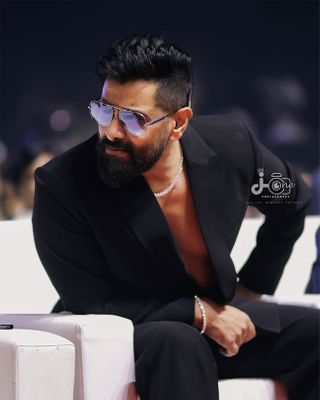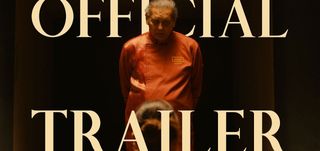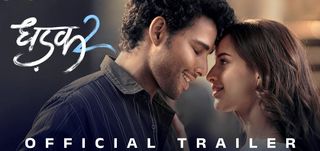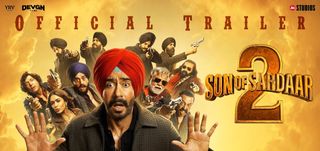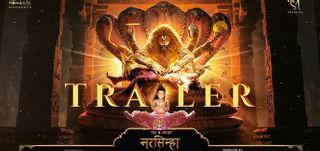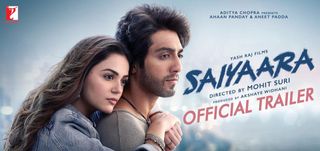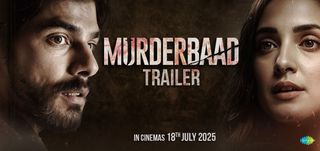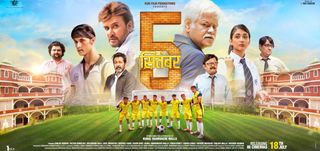
Dum Laga Ke Haisha Movie Review
Prem Prakash Tiwari is vomiting on the night of his wedding, having eaten too many pain pills for his headache during the marriage ceremony. As his wife anxiously waits for him in their bedroom, his babuji snaps at him with a straight face, "kitni baar bola hai, chowmein ke saath doodh matt piya kar". This one scene, not a very important one in the context of the story, tells you more about the film Dum Laga Ke Haisha and its characters than all of its trailers put together could.
DLKH is a simple yet quirky film with a straightforward message - Love comes in all sizes. It is a film that quietly goes about its task of putting a smile on your face throughout its sub-two hours running length. It is a film that offers up without comment a reflection of the society that we live in, where the sanctity of even an institution like marriage has been diluted by greed and our obsession with physical appearances. But above all, it is a film that manages to tug at your heartstrings without trying very hard, without being manipulative.
Ayushmann Khurana is Prem, a simple-faced, 10th fail, cassette shop owner in the small town of Haridwar, who lives with his uneducated parents and his nosy aunt in 1995. He proudly claims there are only 3 things that can make him cry - a beating from his father, an English examination and Kumar Sanu's songs. In his spare time, he dresses up in pyjamas, half-sleeves vests, sweater vests and a woolen cap. He's married under duress, for monetary reasons, to Sandhya (newcomer Bhumi Pednekar). She is an unattractive, overweight, B.Ed graduate who wishes to become a teacher by profession.
The whole film explores the relationship between the husband and wife, that goes from awkward to implosion to finally love. As would be expected from anyone you might know in real life forcibly married to someone against their wish, Prem initially doesn't take his new circumstance well. He screams and shouts, cries in front of his friends, avoids introducing his wife to friends and neighbors, and finally bursts out in a rant that almost ends his marriage.
Authenticity is the coal that makes this train roll. Writer-director Sharat Katariya keeps the proceedings and the incidents believable. He doesn't take flights of fancy and try to create over-the-top situations for comedic purposes. Instead, he finds humor in living in a small house in a small town, in the nitty-gritties of real relationships between real characters, in the frustrating situations that people find themselves in. Even in the film's weaker moments, Katariya doesn't give in to pressure and resort to the commercial song-and-dance routine.
Instead, he soldiers on bravely, staying true to both his vision and to the story that he set out to tell. In a film that is character-driven and not star-driven, he manages to give us characters that we could care about, instead of cardboard cutouts we couldn't be bothered about. Whether it's the strict father who cannot help but point out his son's mistakes, the mother who tries to convice her daughter-in-law to bear with her son, the aunt who always has a cunning taunt up her sleeve, or the two leads themselves, each character has been well fleshed out, who is there to serve a purpose and contribute to the larger picture.
The selling point of the film in the trailers, the Dum Laga Ke Haisha competition, is teased through the film but comes towards the very end of it. Ordinarily, it would upset you that the big event that you were promised comes so late in the day, but relationship dramedy that Katariya manages to construct makes you forget that any such competition was even promised in the first place. Despite that, the competition gives the film a few unexpectedly tense moments and a soaring finish that'll have you shaking your legs in excitement and cheering for a victory for our bickering couple.
An unusual but interesting aspect of the film is the pride that it takes in its music (composed by veteran Anu Malik and lyrics by the talented Varun Grover). The B-grade films style songs (with the exception of the melodious "Moh Moh Ke Dhaage") would stick out like a sore thumb anywhere else, but fit right in in a film where the hero is obsessed with Kumar Sanu songs. In fact, the film ends on a high note with a special 90s-Govinda-Salman-style romantic song with a "Naino Mein Sapna" style video. The background score by Italian composer Andrea Guerra particularly impresses, hitting just the right notes at the right times and taking the drama to new heights.
The cinematography by Manu Anand is quite apt, capturing the smallest of details and faintest of emotions with care. The editing by Namrata Rao is just about perfect, with no sequences looking out of place in terms of the flow of the storyline. Costume design by Darshan Jallan is efficient, fitting right in with the setting and the characterization.
Just like every other department, the film also manages to score in terms of its performances. Ayushmann Khurana gives the performance of his career, although that's not saying much. He probably realized that he's out of his depth here, but he still trudges on with a steely resolve. He manages to curb his tendency to go over-the-top on most occasions and gives an effective, reasonably understated performance. He particularly shines in sequences where he has to portray his character's inner conflict through his face, such as the temptation of sex that seems to be overpowering his decision to maintain his distance from his newlywed bride.
Bhumi Pednekar makes a great debut by any standards, as the woman trying to make the best out of her tough situation. She doesn't shy away from putting her physical appearance to great use. She adds a lot of fuel and energy to the proceedings, and is particularly impressive in her outbursts. But the film belongs to Sanjay Mishra, who pulls a rabbit out of nowhere in the role of Prem's father. He is sprightly and lively and funny and brilliant and makes a lot out of the material that is given to him. Every single time he's on the screen, you start rubbing your hands together in anticipation of some histrionics from him.
Kudos to Yash Raj Films for backing a simplistic, emotional, old-fashioned project such as DLKH, which is in complete contrast to the flashy, extravagant cinema they're known for. They act as a shining example of what a big production house can achieve of they paid more attention to the story over the budget. Now, if only they would release the long-delayed, low-budget, hard-hitting drama Titli.
Dum Laga Ke Haisha is an anomaly of a film that chooses to tell an intimate story in the most grounded manner, all the while shaming us into accepting what a misogynistic and materialistic world we live in. It provokes thought and discussion, but never at the cost of entertainment. Sharat Katariya, take a bow. This is one piece of inspired writing and filmmaking that needs to be seen to be believed.







